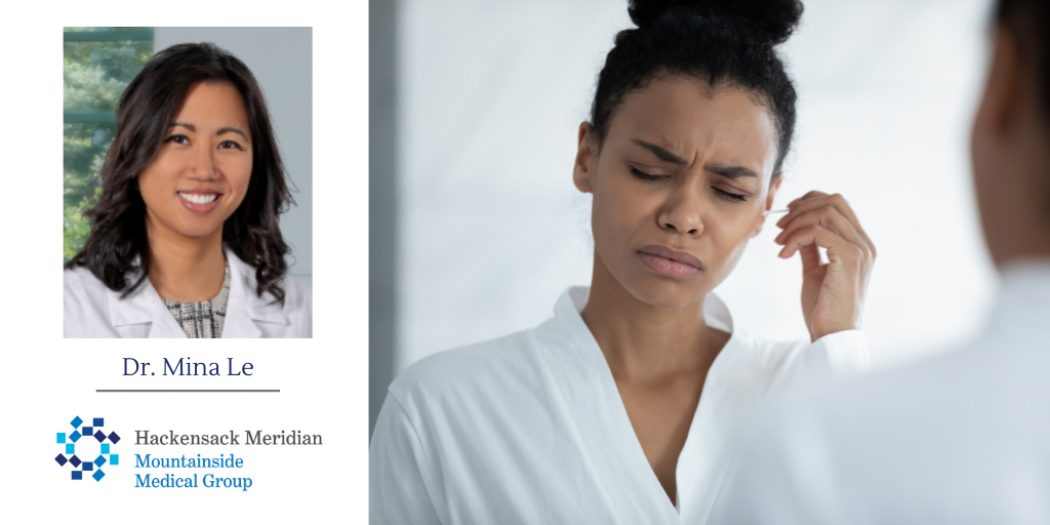Dealing With Earwax

Earwax often gets a bad rap as people believe the gooey, yellow substance is synonymous with bad hygiene, but Mountainside Medical Group’s otolaryngologist-head and neck surgeon Mina Le, M.D., explains why earwax is actually healthy and debunks other common misconceptions around it.
“Your ear canals are designed to be ‘self-cleaning,’” Dr. Le said. “Your body makes earwax to protect your ears and keep germs out. Whether you produce thin, flaky earwax or thick earwax depends on your genetics. Most people do not need to do anything to clean the insides of their ears.”
While a normal amount of earwax is healthy and necessary to defend your body from germs and infection, excess earwax may indicate a problem.
“Built-up earwax is called cerumen impaction,” Dr. Le said. “When earwax builds up so much that it blocks off your ear canal, it can reduce your hearing and create an uncomfortably full sensation or even pain. If this happens, you can administer carbamide peroxide (Debrox) drops to your ears. These are available over-the-counter to soften and possibly dissolve your earwax. Over-the-counter earwax irrigation kits are also safe to try.”
If things progress, Dr. Le suggests an ENT specialist may be your best bet to finding relief.
“Generally, the most effective method is to have an ENT specialist remove the wax,” Dr. Le said. “An ENT physician will magnify your ear canal with a microscope and remove your earwax with gentle suction (a vacuum) that does not hurt. Occasionally, different instruments such as a curette or pick will be used, if the earwax is thick and stuck.”
For regular maintenance of your ears, Dr. Le warns against reaching for the Q-tips.
“Despite their popularity, cotton swabs push earwax deeper, so they are responsible for causing many earwax blockages in the first place,” Dr. Le said. “They can break off inside the ear, and they can puncture the eardrum. Regular use of cotton swabs also leads to a vicious cycle of ear itching by irritating the delicate skin of the ear canal.”
In most instances, earwax can be managed at home, but if you’re noticing an unusual buildup of earwax or pressure, contact an ENT to have your ears cleaned and check for any underlying issues.
Mina Le, M.D. is an otolaryngologist-head and neck surgeon with Mountainside Medical Group. She sees patients in the Mountainside Medical Office Building located at 311 Bay Avenue, Suite 300, in Glen Ridge, NJ. New patients are welcome and may visit www.mountainsidemedicalgroup.com to request an appointment or call 973-798-477.



